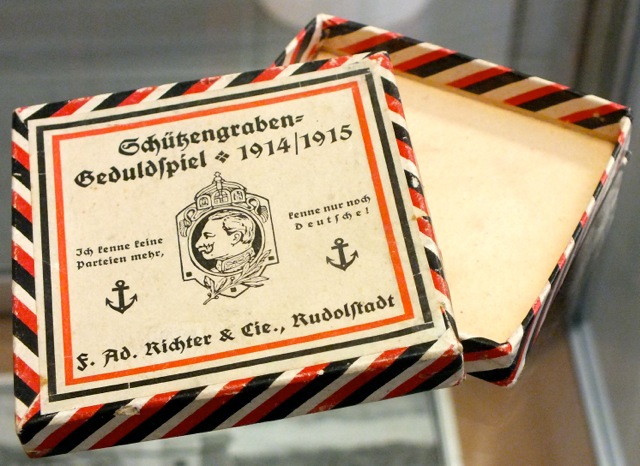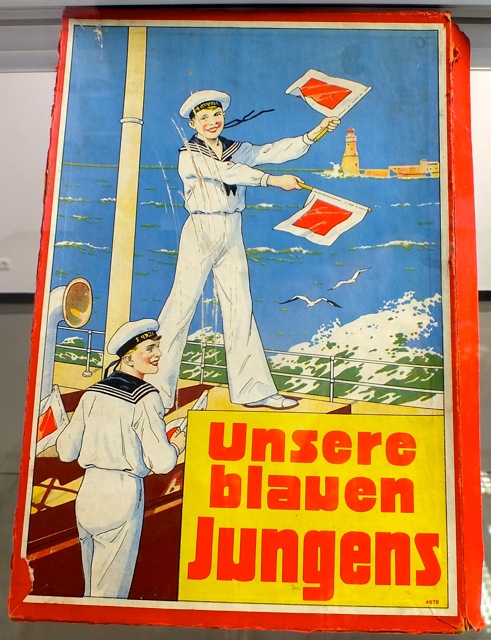War Games in Germany – Text und Photos von Bruce Whitehill
Ausstellung im Panzermuseum in Munster im November 2013
War Games in Germany
After World War II, the German parliament considered banning war toys, but they deferred to the struggling toy industry and did not impose any restrictions. However, the public took it as a moral obligation and generally avoided the purchase of war-related toys and games; this unofficial prohibition is still in place today.
Militaries still abound worldwide, and I find it interesting (and objectionable) that they refer to military maneuvers as war games. War Games, in a historical sense, however, is the title of a special exhibit that took place in the Panzer Museum in Munster, Germany from September through November 2013. (Admission was free if you were a Munsteraner.) The short, small exhibit, focused on war toys and games of 100 years.
The modern swastika, a Nazi symbol from 1920 through WWII, has been generally outlawed in Germany. In the exhibit, however, the swastika, along with references to Hitler and Hitlers Youth (an official organization at the time), can be found. Other games (and one puzzle) date back to WWI and even to the beginning of the century. The exhibit organizers make it clear in their text: The use of war toys and games has been argued about for decades. The purpose of this exhibit is not to glorify war but to show the historic aspects of it.
Bilder von Spielen der Ausstellung:
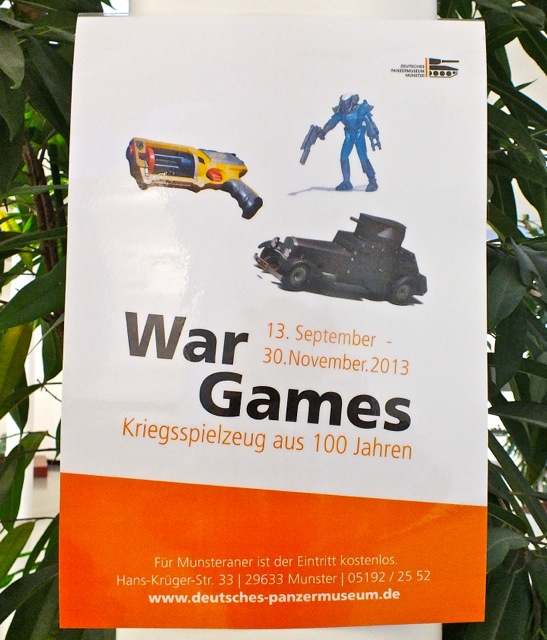
A War Games poster, War Games exhibit, Munster, Germany
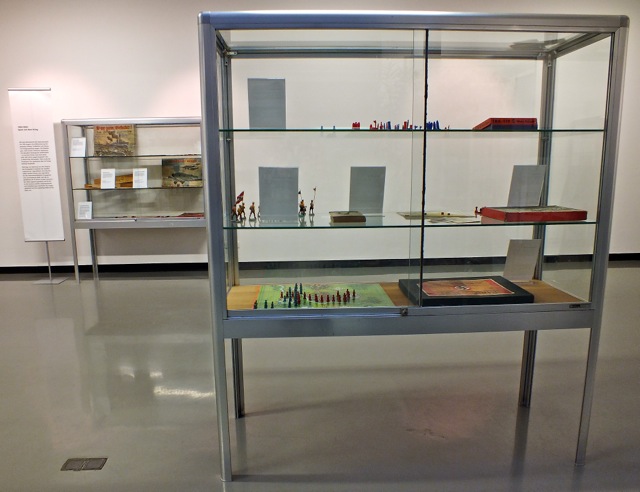
An exhibit showcase or two, War Games exhibit, Munster, Germany
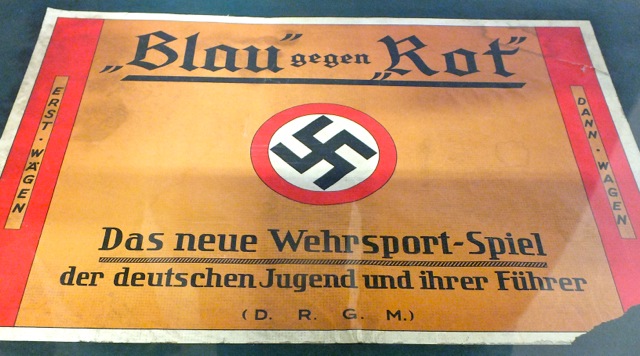
Blau gegen Rot – Blue against Red – ca. 1933-1942, H. Lorenz-Moeller, Parchim – 1
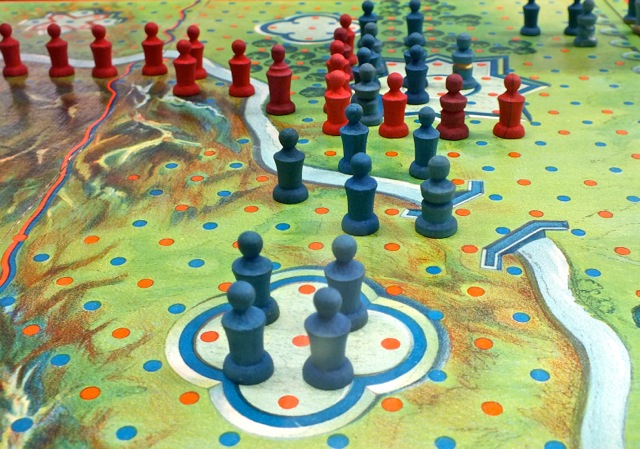
Blau gegen Rot – Blue against Red – ca. 1933-1942, H. Lorenz-Moeller, Parchim – 2
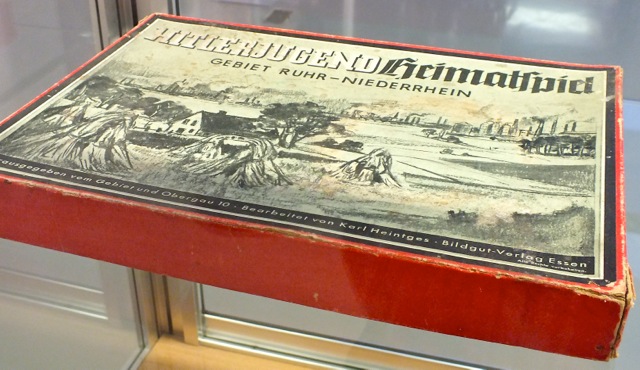
Hitlerjugend Heimatspiel – Hitler Youth Homeland Game, >1936, Bildgut-Verlag, Essen – 1
From the time the NSDAP (National Socialist German Workers Party) came into power in 1933, various games were published to show the party’s political presence both at home and abroad.

Hitlerjugend Heimatspiel – Hitler Youth Homeland Game, >1936, Bildgut-Verlag, Essen – 2
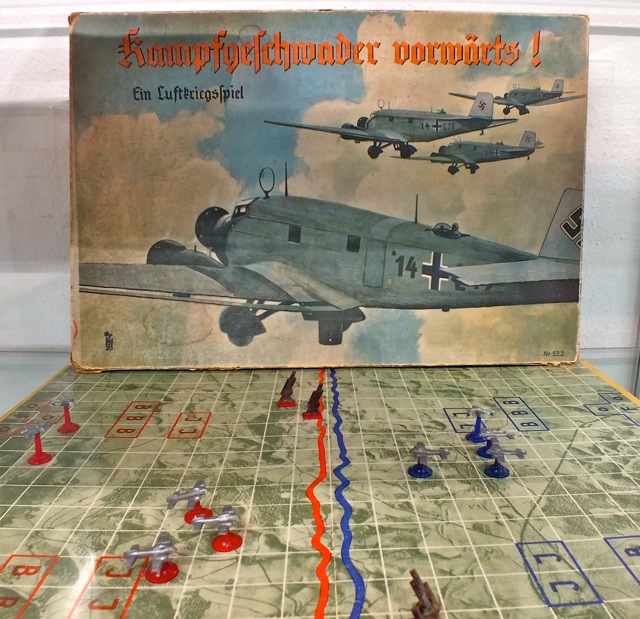
Kampfgeschwader vorwärts – Battle Squadron Advance, ca. 1935, Verlag Josef Scholz, Mainz – 1
New technology, such as found with modern aircraft and ships, were used to enthuse the youth about military might.
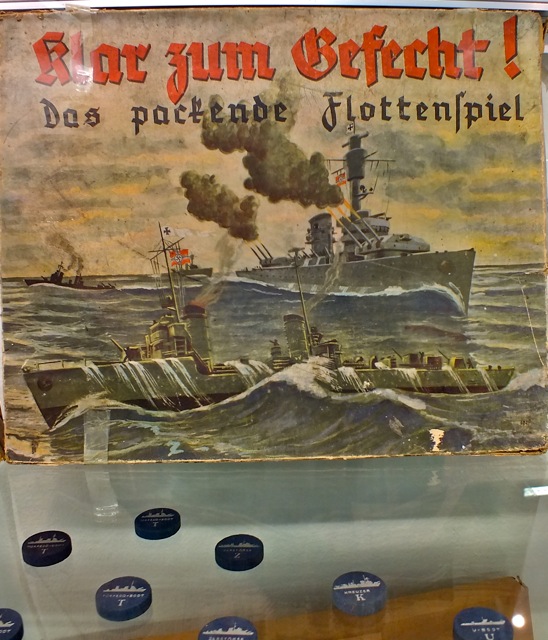
Klar zum Gefecht, Das Pactende Flottenspiel – Ready for Action, The Thrilling Fleet Game, WWII era, Germany
First tin ships, then wooden pieces, including U-boats, battleships and other warships, 22 different ones in all, per player.
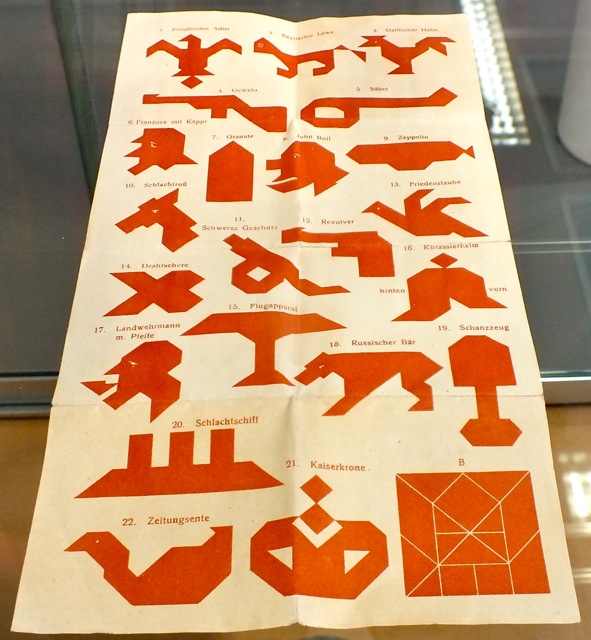
Schützengraben Geduldspiel – Trench Patience Puzzle – tangrams, 1914-1915, S. Ad. Richter, Rudolstadt
„I don’t know any (political) parties anymore, I just know Germans.“ –Kaiser Wilhelm II, German Emperor, on the fourth day of WWI.
Marine toys were popular during the reign of emperor Wilhelm II, who was a strong promoter of the navy.
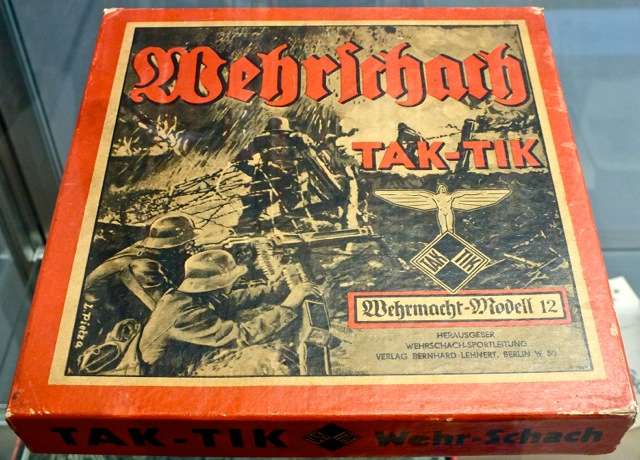
Wehrschach Tak-Tik – Military Chess Tactic, 1941, Verlag Bernhard Lehnert, Berlin – 1
Wehrmacht – Germany military – Model 12. This game had possibly the 2nd highest print run of all board games during the Hitler nationalism period.
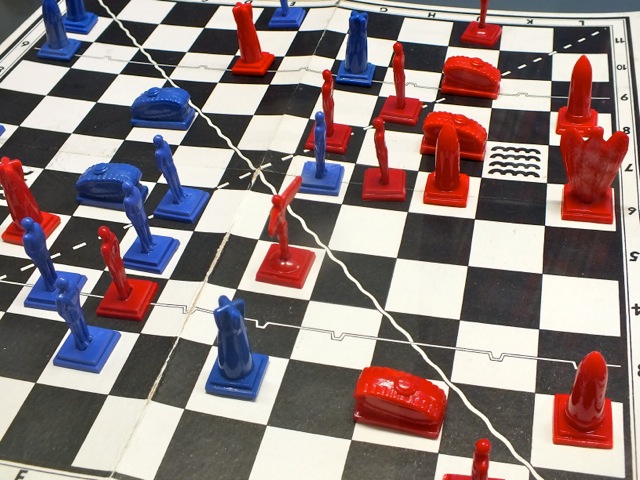
Wehrschach Tak-Tik – Military Chess Tactic, 1941, Verlag Bernhard Lehnert, Berlin – 2
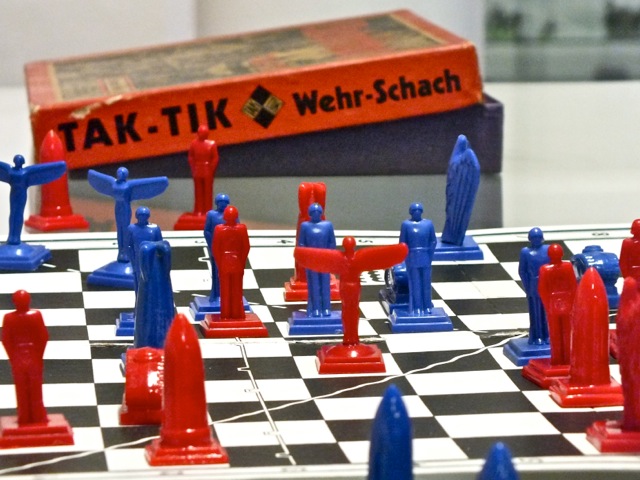
Wehrschach Tak-Tik – Military Chess Tactic, 1941, Verlag Bernhard Lehnert, Berlin – 3
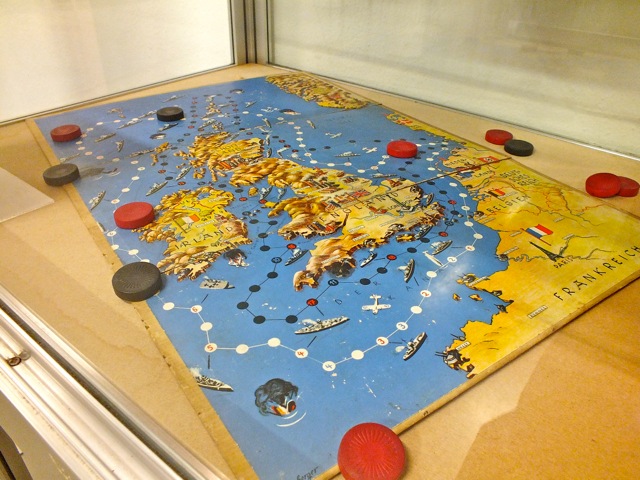
Wir fahren gegen Engeland – We Go Against England, WWII era
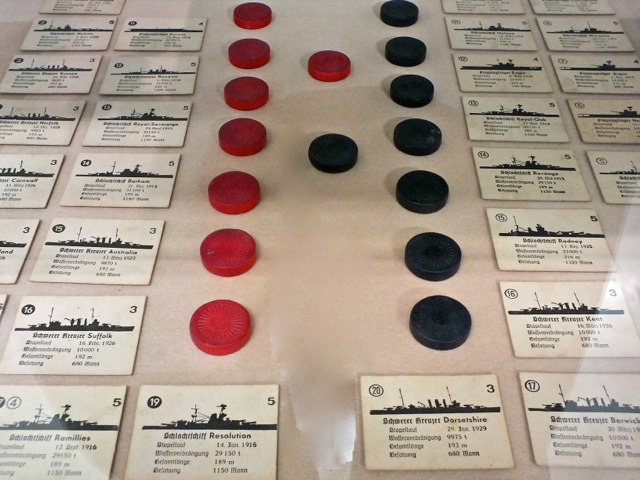
Wir fahren gegen Engeland – We Go Against England, WWII era – 1
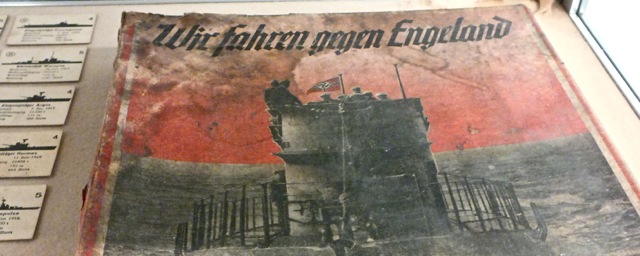
Wir fahren gegen Engeland – We Go Against England, WWII era


